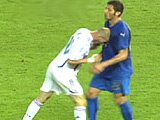
The 16th Annual Cultural Studies Conference at Kansas State University, March 8-10, 2007
TOPIC: Entertainment
CONFERENCE DATES: March 8-10, 2007
PROPOSAL DEADLINE: Sept 20, 2006
Keynote Speaker: Judith Halberstam, author of The Transgender Moment: Gender Flexibility and the Postmodern Condition, The Drag King Book, Female Masculinity, Skin Shows: Gothic Horror and the Technology of Monsters, and Posthuman Bodies.
Live Performance by El Vez, "the Mexican Elvis"
Conference Description:
“Anyone who tries to tries to distinguish entertainment from education doesn’t know the first thing about either”
–Marshall McLuhan
Entertainment and the entertainment world continue to vex academics, even after the rise of Cultural Studies and its willingness to break down cultural hierarchies. It is time to address this often marginalized topic head on. Despite our disciplinary anxiety, there are increasing attempts to theorize entertainment and “entertainment value,” as Richard Dyer has done for the musical. What is it exactly that happens when we say we are “entertained?” And what does this experience have to do with all our usual categories and criterias” aesthetics, politics, culture, identity, ethics, value? When video games are used to train troops, journalism goes for ratings and pretty faces, and political parties and corporations manufacture seductive and pleasurable images? Do we find ourselves perforce choosing between a liberatory “fandom” and the horrors of the seductive, distracting, capitalist ‘culture industry?” Is there a progressive understanding or use of entertainment for democracy and the public sphere? We welcome papers and panels on any topics and modes of entertainment, from any culture, in any historical period.
Some topics and questions for possible consideration, not intended to be an exclusive list:
“infotainment”
entertainment in the high “arts” (theater, opera, classical music and art)
docudrama and “reality” entertainment
education and entertainment, education vs. entertainment
“children’s” vs. “adult’s” entertainment (cartoons, animation, etc.)
the “adult entertainment” industry
elevating the stupid and shallow (Jackass, Paris Hilton)
Hollywood and anti-Hollywood
Bollywood
Rupert Murdoch
global television
entertainment and propaganda
Barthes, Debord, Baudrillard, Zizek
early modern entertainment (jigs, bear-baiting, public execution, Shakespeare)
serious clowning: Michael Moore, Jon Stewart, Stephen Colbert
jokes, racial and ethnic and misogynist
“The Aristocrats”
violence, cruelty, and sadism
religious entertainment and ritual
entertainment, fear, and national security
entertainment with social messages
the construction and use of boredom
material entertainment: sugar, caffeine, drugs
eco-tourism
amateurism and the local
transnational entertainment and cultural imperialism, from Disney to McDonalds
spectators and participants, couch potatoes and athletes
critics and reviewers
horror, gothic, perversity
parody
Standard conference format: panels of three papers; each paper a 15 minute oral reading/presentation. Alternate session formats may also be proposed.
Please send a 1 pg proposal (or 1 pg per paper for a panel proposal) to Michele Janette, Director, Program in Cultural Studies, English Dept, Kansas State University, Manhattan KS 66502. Email submissions strongly encouraged: mjanette@ksu.edu. Please include return email address for all submissions.
Proposal Deadline: September 20, 2006
 Saturday, October 14, 2006
Saturday, October 14, 2006






















